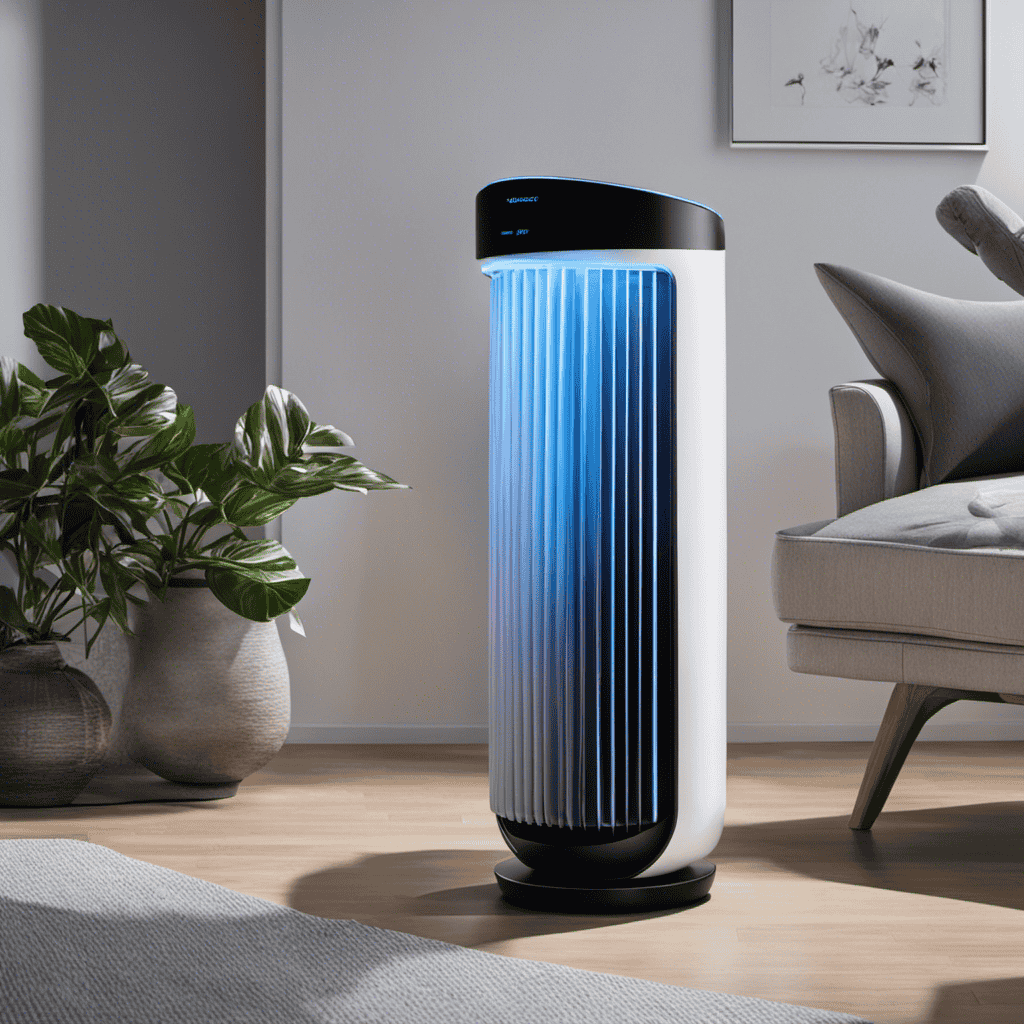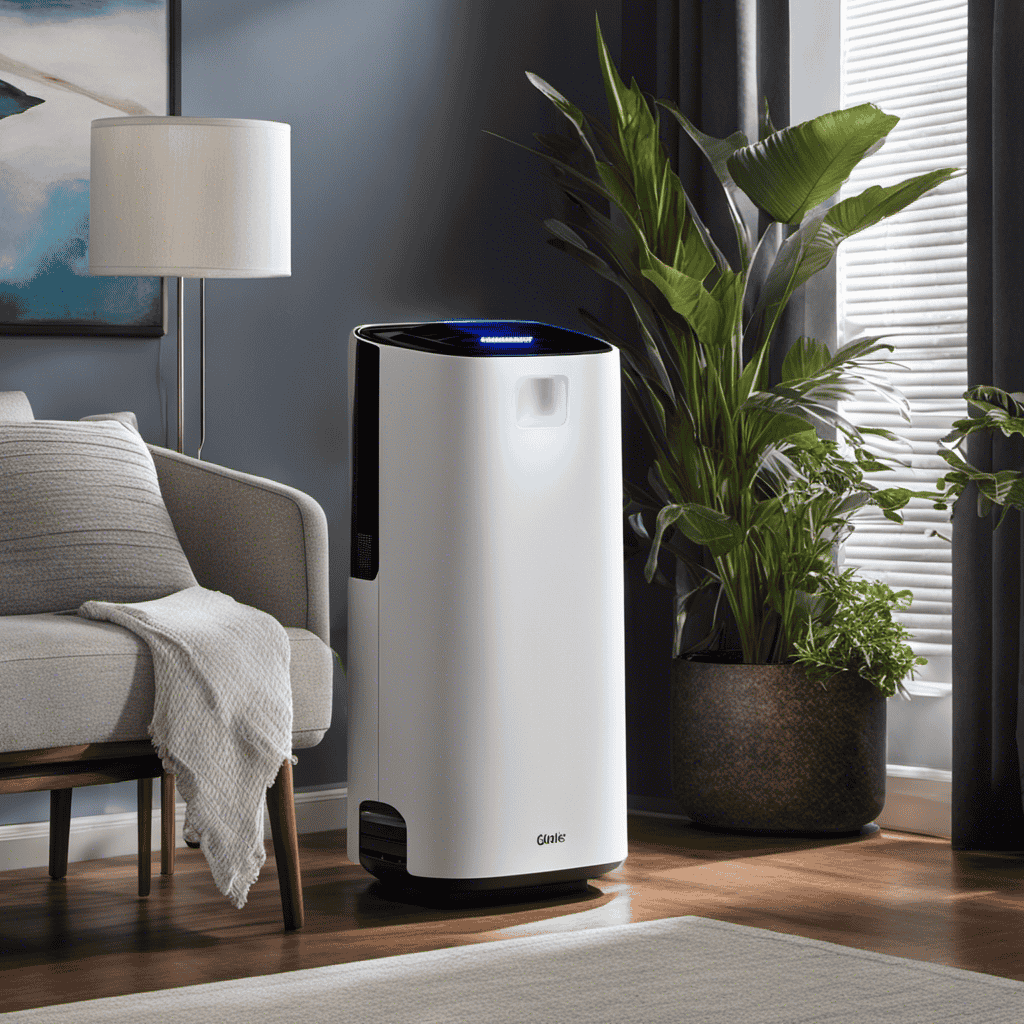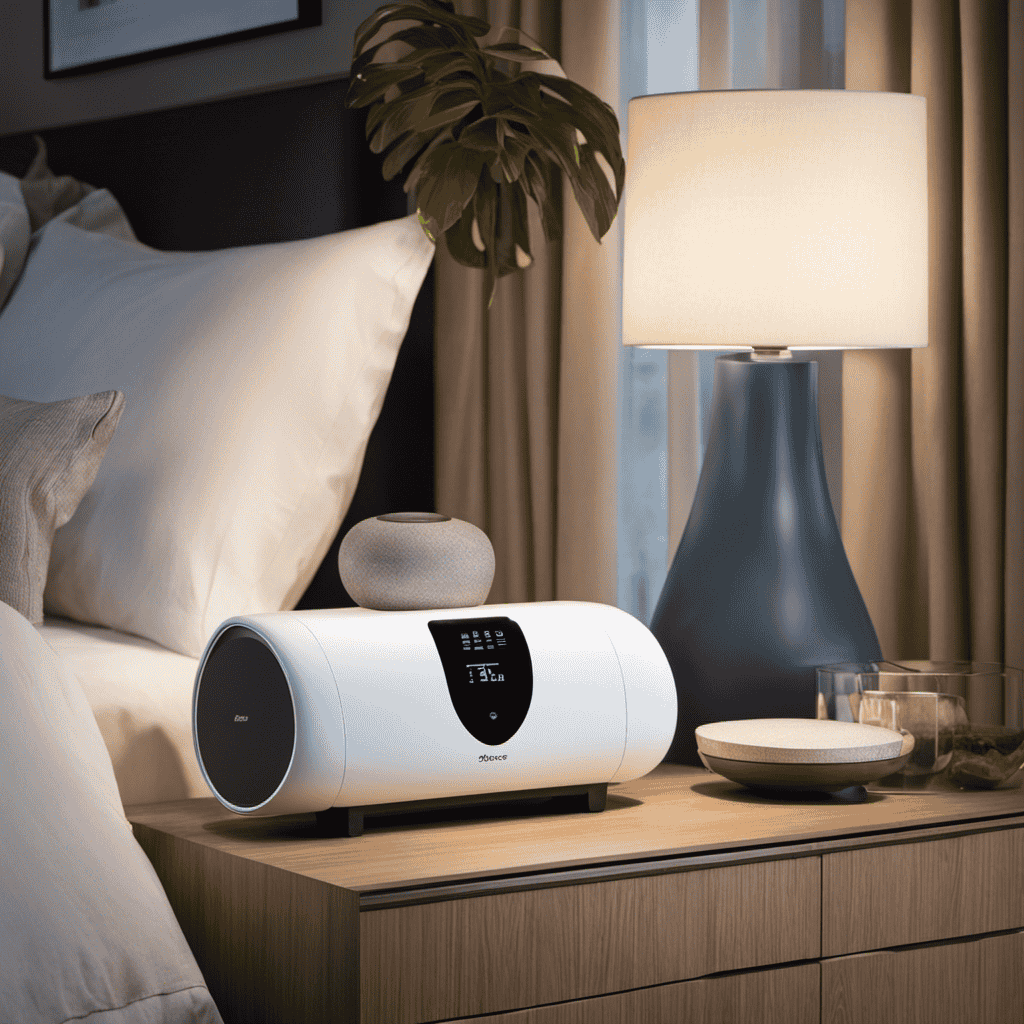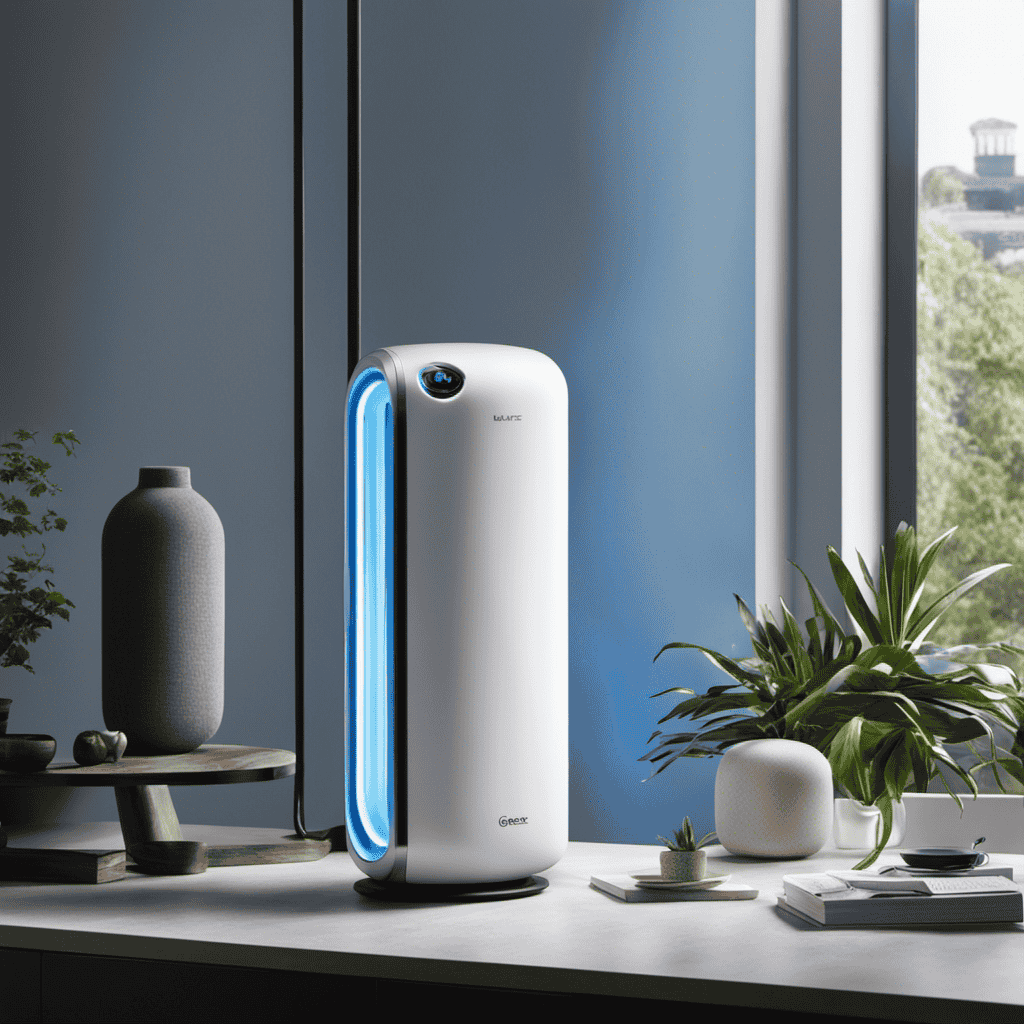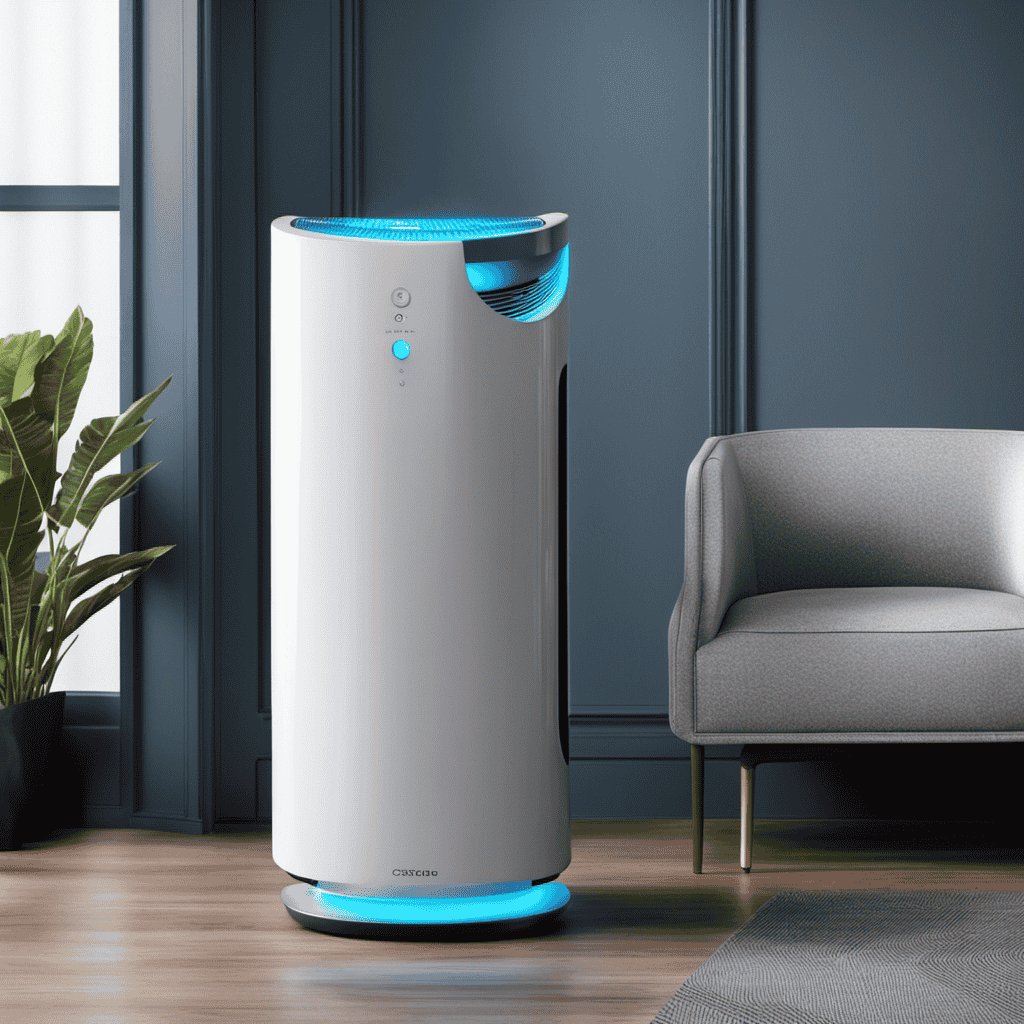Air Purifiers and Mental Health: An Overlooked Connection
As someone who has struggled with mental health, I never realized the profound impact that clean air could have on my well-being. Did you know that indoor air pollution can increase the risk of mental health issues by up to 50%? It’s a staggering statistic that highlights an often overlooked connection between air quality and our mental state.
In this article, we’ll explore how air purifiers can play a crucial role in promoting mental wellness and improving our overall quality of life.
Key Takeaways
- Indoor air pollution increases the risk of mental health issues by up to 50%.
- Exposure to air pollution leads to higher stress levels and can cause a decline in cognitive function.
- Poor air quality impairs cognitive function and triggers anxiety symptoms.
- Investing in clean air through the use of air purifiers or proper ventilation promotes optimal mental health and well-being.
The Impact of Indoor Air Quality on Mental Health
Indoor air quality can have a significant impact on your mental health. It’s not just about the physical comfort of breathing in clean air; it goes much deeper than that. Research has shown the importance of ventilation in mental health and the relationship between air quality and cognitive function.
When we think about mental health, we often focus on factors like stress, relationships, and lifestyle choices. However, we often overlook the impact of the environment we’re in, specifically the air we breathe. Poor air quality can lead to a range of mental health issues, including increased stress, difficulty concentrating, and even depression.
One of the main reasons why indoor air quality is so crucial for mental health is the relationship between air quality and cognitive function. Studies have consistently shown that exposure to air pollutants can impair cognitive abilities, such as memory, attention, and problem-solving skills. This can have a significant impact on our daily lives, affecting our work performance, academic achievements, and overall well-being.
As we delve deeper into the topic of air purifiers and mental health, it’s essential to understand how air pollution affects psychological well-being. By exploring the specific ways in which air pollution can impact our mental health, we can better appreciate the importance of investing in solutions like air purifiers to improve indoor air quality and safeguard our mental well-being.
How Air Pollution Affects Psychological Well-being
You might not realize how much pollution can impact your state of mind. Air pollution, in particular, has been linked to increased stress levels and a decline in cognitive function. Here are a few ways in which air pollution can affect your psychological well-being:
-
Increased stress levels:
Studies have shown that exposure to air pollution can lead to higher levels of stress. The pollutants in the air, such as fine particulate matter (PM2.5), can trigger an inflammatory response in the body, which in turn affects the brain and increases stress levels. Long-term exposure to air pollution has been associated with an increased risk of mental health disorders such as anxiety and depression. -
Decline in cognitive function:
Air pollution has also been linked to a decline in cognitive function. Research suggests that exposure to air pollutants can impair cognitive abilities such as memory, attention, and problem-solving skills. Fine particulate matter (PM2.5) can enter the bloodstream and affect the brain directly, leading to oxidative stress and inflammation, which can contribute to cognitive decline.
Understanding the impact of air pollution on mental health is crucial for our overall well-being. It is important to advocate for clean air and take steps to reduce pollution levels for the sake of our psychological well-being.
Understanding the Link Between Clean Air and Mood
When it comes to the impact of clean air on your mood, it’s important to consider the link between air quality and emotional well-being.
The quality of the air we breathe has a significant effect on our cognitive function and overall mental health. Studies have shown that poor air quality can impair cognitive function, leading to decreased concentration, memory problems, and even increased risk of neurodegenerative diseases such as Alzheimer’s. On the other hand, clean air has been found to enhance cognitive performance, improve attention span, and boost overall brain function.
Additionally, there is a strong correlation between air pollution and anxiety levels. Breathing in polluted air can trigger anxiety symptoms and exacerbate existing anxiety disorders. The presence of harmful pollutants in the air, such as particulate matter and volatile organic compounds, can activate the body’s stress response system, leading to feelings of restlessness, irritability, and unease.
Understanding the link between clean air and mood is crucial for our overall well-being. By prioritizing clean air and taking steps to improve air quality, such as using air purifiers or ensuring proper ventilation, we can positively impact our emotional well-being and cognitive function.
It’s important to create environments that support clean air, both indoors and outdoors, to promote optimal mental health for ourselves and future generations.
The Role of Air Purifiers in Promoting Mental Wellness
Using air purifiers can be an effective way to promote overall well-being by improving the quality of the air we breathe. When it comes to mental health, the benefits of air purification extend beyond just physical well-being.
Here are some ways in which air purifiers can contribute to mental clarity and reduce stress levels:
-
Reduced exposure to pollutants: Air purifiers filter out harmful particles such as dust, pollen, and pet dander, which can trigger allergies and respiratory issues. By reducing exposure to these irritants, air purifiers create a clean and healthy environment, allowing us to focus better and think more clearly.
-
Improved air circulation: Air purifiers not only remove pollutants but also improve air circulation. Stale and stagnant air can lead to feelings of lethargy and decreased mental alertness. By constantly circulating clean air, air purifiers promote a fresh and invigorating atmosphere, enhancing mental clarity and productivity.
The connection between air quality and stress levels is well-established. Studies have shown that poor indoor air quality can contribute to increased stress, anxiety, and even depression. By investing in air purifiers, we can create a sanctuary of clean air that supports our mental well-being.
Improving Mental Health Through Clean Air Solutions
Investing in air purifiers can be a simple and effective way to enhance our overall well-being by improving the quality of the air we breathe. Clean air is essential not only for our physical health but also for our mental health. Research has shown that there are several mental health benefits associated with using air purifiers.
Air purification techniques, such as HEPA filtration and activated carbon filters, can effectively remove pollutants and allergens from the air. This can reduce the risk of respiratory problems and allergies, which have been linked to an increased risk of mental health issues such as anxiety and depression.
In addition to removing harmful particles from the air, air purifiers can also help create a calmer and more relaxing environment. The white noise produced by some air purifiers can aid in sleep and relaxation, reducing stress levels and promoting better mental well-being.
To better understand the mental health benefits of air purifiers, let’s take a look at the following table:
| Mental Health Benefits | Air Purification Techniques |
|---|---|
| Reduced anxiety | HEPA filtration |
| Improved sleep | Activated carbon filters |
| Enhanced mood | Ionization |
| Decreased stress | UV-C light |
| Improved focus | Ozone generators |
Frequently Asked Questions
What Are Some Common Symptoms of Poor Indoor Air Quality That Can Contribute to Mental Health Issues?
Poor indoor air quality can have significant effects on cognitive function and sleep quality, both of which can contribute to mental health issues.
Symptoms of poor air quality include headaches, fatigue, difficulty concentrating, irritability, and increased stress.
Breathing in indoor air pollutants can also disrupt sleep patterns, leading to insomnia and poor overall sleep quality.
These issues can negatively impact mental well-being and contribute to the development or exacerbation of mental health conditions.
It is crucial to address and improve indoor air quality for the sake of our mental health.
Are There Any Specific Mental Health Conditions That Are Particularly Affected by Air Pollution?
There are specific mental health conditions that can be particularly affected by air pollution. Research shows that exposure to air pollution can contribute to the development and worsening of conditions such as depression, anxiety, and even cognitive decline.
The harmful particles in the air can trigger inflammation in the body and brain, leading to an increase in symptoms for those already struggling with mental health. It’s important to address both the physical and mental aspects of air pollution for overall well-being.
How Does Clean Air Improve Mood and Overall Mental Well-Being?
Clean air plays a crucial role in improving mood and overall mental well-being. The impact of air pollution on mental health cannot be underestimated. Breathing in polluted air can lead to increased stress and anxiety levels.
On the other hand, clean air can help reduce these negative emotions and promote a sense of calm and relaxation. It is important to prioritize clean air in our environments, as it directly affects our mental health and overall well-being.
Are Air Purifiers the Only Solution for Improving Indoor Air Quality and Promoting Mental Wellness?
Air purifiers are not the only solution for improving indoor air quality and promoting mental wellness. While they can be effective in removing pollutants, there are alternative methods to consider.
Holistic approaches, such as proper ventilation, reducing chemical exposure, and incorporating natural elements into our living spaces, can also have a positive impact on air quality and mental health.
It’s important to explore a range of options to create a healthy and balanced environment for our well-being.
Can Air Purifiers Completely Eliminate All Pollutants From Indoor Air?
Air purifiers are effective in eliminating pollutants from indoor air, but they may not completely eliminate all types of pollutants.
Different air purification techniques target specific pollutants, such as HEPA filters for particles and activated carbon filters for odors and chemicals.
However, certain pollutants like volatile organic compounds (VOCs) can be challenging to eliminate entirely.
It’s important to choose an air purifier that suits your specific needs and consider other strategies, like proper ventilation and reducing pollutant sources, for optimal indoor air quality.
Conclusion
In conclusion, it’s clear that the connection between air purifiers and mental health is vital. The impact of indoor air quality on our psychological well-being cannot be overstated.
Air pollution poses a significant threat to our mental wellness, so it’s crucial to understand and address this issue. By investing in air purifiers, we can improve the air we breathe. This improvement can lead to a positive shift in our mood and overall mental health.
Let’s embrace the power of clean air and experience a transformative journey towards emotional well-being.




